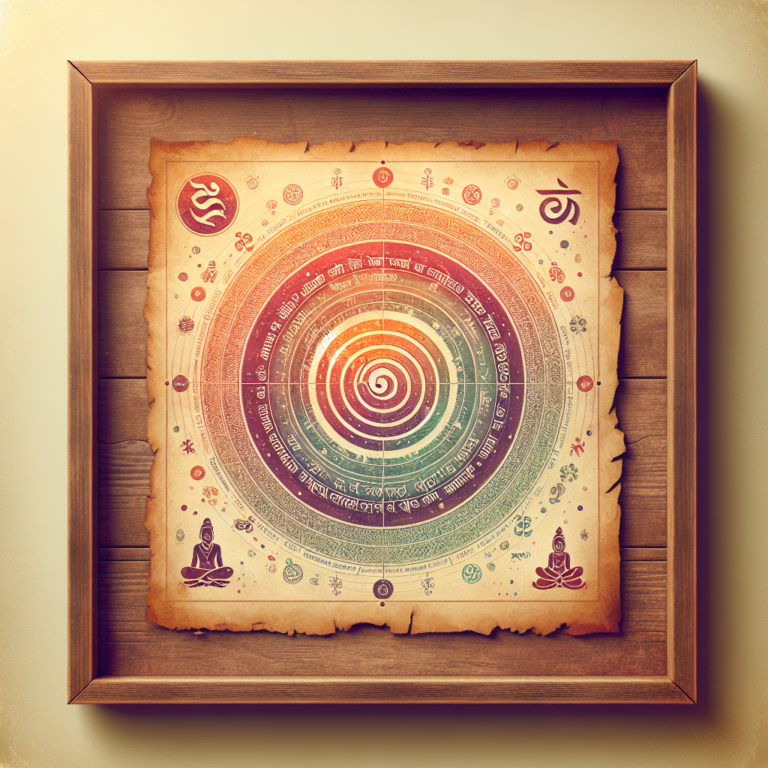Karma is a term that has transcended religious and cultural boundaries, becoming a popular concept in the Western world. Most people have a rudimentary understanding of karma: it suggests that our actions have consequences, indicating that what we do today will affect us tomorrow. However, to fully grasp the intricacies of karma, it is essential to delve deeper into its historical roots, philosophical implications, and how it applies to our daily lives.
The Roots of Karma
The concept of karma originates from ancient Indian philosophies, especially within Hinduism, Buddhism, and Jainism. The word "karma" comes from the Sanskrit root "kri," which means "to act" or "to do." Karma is often summed up by the fundamental principle of cause and effect. Every action (karma) we take has a corresponding reaction, which is why some may describe it as the "law of moral causation.”
In Hinduism, karma is closely tied to the cycle of samsara, which refers to the cycle of birth, death, and rebirth. According to this belief, the actions one performs in their lifetime will determine their fate in the next; good deeds lead to positive outcomes, while negative actions result in negative repercussions. Similarly, Buddhism teaches that karma plays an essential role in determining one’s path toward enlightenment and liberation from suffering. Jainism also emphasizes the impact of karma but places greater importance on the purity of the soul and the need to achieve liberation through ethical living.
Karma in Everyday Life
In contemporary contexts, karma is often reduced to the phrase “what goes around, comes around.” This simplified understanding may capture the essence of karma but overlooks its complexity. Karma is not merely about punishment and reward; it also emphasizes intention and the mindset behind actions. The ethical and moral quality of our intentions significantly influences the quality of our karma.
Types of Karma
Karma can be categorized into several types that offer a deeper understanding of its implications in our lives:
Sanchita Karma: This is the accumulated karma from all our past lives. It represents the totality of our experiences, both good and bad, that we carry into our current existence.
Prarabdha Karma: This is the portion of our accumulated karma that we are currently experiencing in this lifetime. It encompasses the circumstances we find ourselves in, including our relationships, challenges, and personal attributes.
Kriyamana Karma: Also known as "current karma," this type reflects the choices we make in the present moment. Every action we take adds to our karma, influencing our future experiences.
- Aagami Karma: This refers to future karma that will manifest based on our current actions and choices. It serves as a reminder that the decisions we take today shape our tomorrow.
Understanding these classifications of karma helps us realize that we are both the architects of our destiny and participants in a vast web of interconnected lifetimes.
Karma and Intention
An essential aspect of karma is the underlying intention behind our actions. In many philosophical traditions, it is believed that intention shapes karma more than the action itself. For instance, helping others with a genuine intention to uplift them generates positive karma, while performing kind acts for ulterior motives may not yield the same results. This principle emphasizes the necessity of self-awareness and mindfulness in our everyday actions.
The Role of Karma in Spiritual Growth
Karma is not solely about balance and justice; it is also a pathway toward spiritual growth and awareness. When we understand that our choices impact our future, we naturally become more conscious of our actions, leading to personal improvement.
Karmic lessons allow us to learn about compassion, patience, and forgiveness. For example, encountering unkindness from others may teach us about empathy and the significance of spreading kindness in return. In contrast, positive experiences may reinforce our understanding of gratitude and abundance. This reciprocal nature of karma fosters continuous learning, enabling us to expand our awareness and embody the principles of love and kindness.
Breaking the Cycle of Karma
Many spiritual traditions suggest that while we are bound by our karma, we also possess the ability to break free from the cycle of cause and effect. This liberation comes from various practices, including meditation, mindfulness, and acts of service. By redirecting our energy toward positive actions and refining our intentions, we create new karmic paths that can lead to enlightenment and a state of inner peace.
It is essential to remember that breaking the karmic cycle does not mean evading responsibility for our actions. Instead, it implies a conscious effort to transform ourselves and our circumstances through enlightened choices. Each moment presents us with the opportunity to act differently, fostering positive change in our lives and supporting the well-being of others.
Practical Applications of Karma
Understanding karma can profoundly impact our relationships and day-to-day interactions. Here are some practical applications to consider:
Mindfulness: By being mindful of our actions and thoughts, we can become more aware of the consequences they may bring. Practicing mindfulness encourages us to think before we act, leading to more intentional choices.
Compassion: Approaching situations with kindness and understanding allows us to create a ripple effect of positivity. When we display compassion in our interactions, it invites others to reciprocate.
Self-Reflection: Regularly reflecting on our actions can help us identify patterns of behavior that may need change. Acknowledging our past choices provides valuable insights into our present selves.
Forgiveness: If we recognize that everyone is subject to karma, it becomes easier to forgive ourselves and others for mistakes. This understanding encourages healing and personal growth.
- Service: Engaging in acts of service and helping others is a powerful way to generate positive karma. Such actions are not only beneficial for others but also enrich our own lives.
FAQs about Karma
Q1: Does karma mean that all bad things that happen to us are punishments for our past actions?
A1: Not necessarily. Karma is more about understanding cause and effect rather than viewing it as a system of punishment and reward. Sometimes, challenges can be opportunities for growth and learning.
Q2: Can karma change over time?
A2: Yes, karma can evolve based on our current actions and intentions. Engaging in positive behaviors can generate new positive karma, altering our future experiences.
Q3: How can I create good karma?
A3: You can create good karma by acting with kindness, being honest, helping others, and reflecting on your intentions. Mindfulness and self-awareness play essential roles in generating positive karma.
Q4: Is karma the same as fate?
A4: While karma involves cause and effect and can influence your fate, it does not determine it rigidly. You have the power to make choices that can change your experiences and influence your future.
Q5: Can one escape their karma?
A5: While we can’t escape our past karma, we can consciously change our present actions. Through positive choices and spiritual practices, we can transcend negative karmic cycles and foster a better future.
In conclusion, karma is a multifaceted concept that urges us to recognize the significance of our actions and their wider implications. By cultivating mindfulness, compassion, and self-awareness, we not only create a positive impact on our lives but also contribute to the greater good of society. Understanding karma as a dynamic and transformative principle can empower us to shape our destinies and evolve on our spiritual journeys.
It seems you want to create a prompt, but you haven’t specified what kind of prompt you’re looking for. Prompts can vary widely in purpose and context. Could you please specify what type of prompt you would like? For example:
– Writing prompt (fiction, poetry, etc.)
– Art prompt
– Coding prompt
– Discussion prompt
– Educational prompt
Let me know, and I’ll be happy to help!, #Karma #Unveiled #Understanding #Effect #Actions, #Karma #Unveiled #Understanding #Effect #Actions, 1735175331, karma-unveiled-understanding-the-cause-and-effect-of-our-actions





